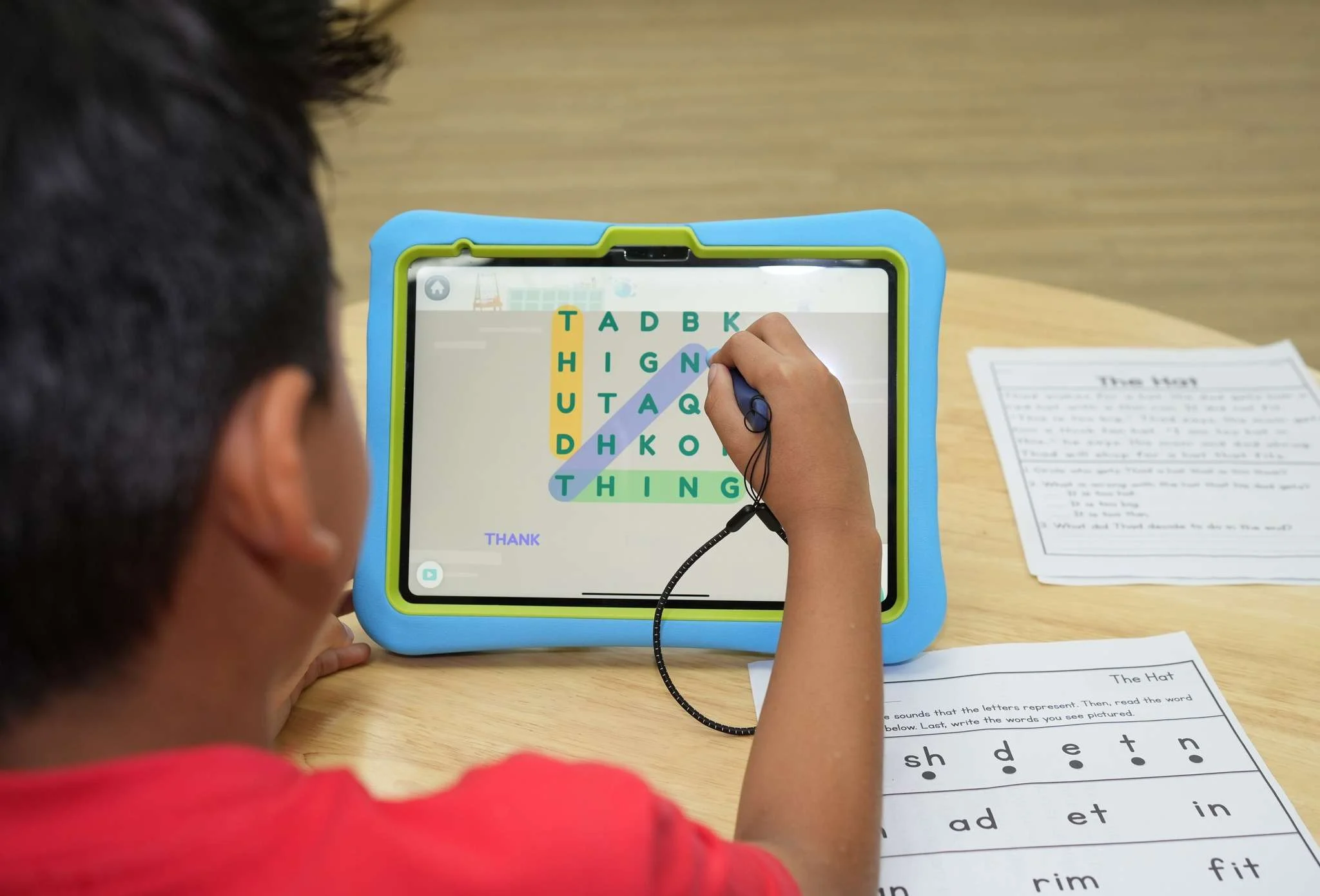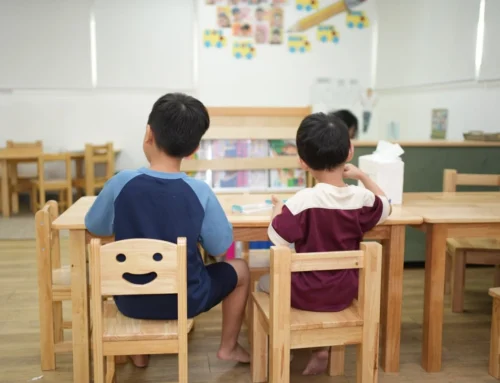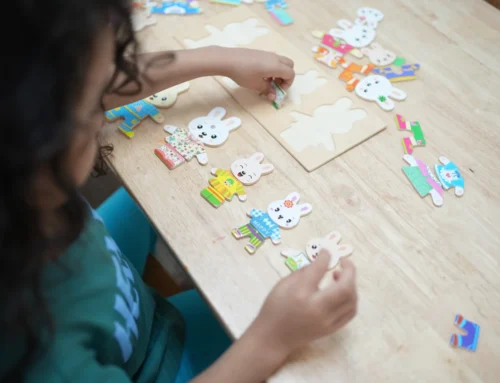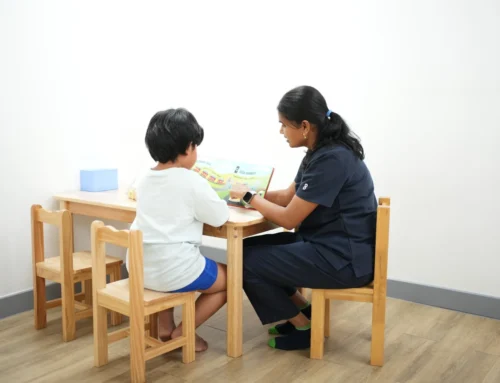Early readers make the fastest progress when structured phonics intervention is paired with engaging, one-on-one teaching. At OrbRom Center, we use evidence-based phonics routines with interactive activities to strengthen decoding, spelling, and comprehension—so children move from guessing at words to reading them accurately and confidently.
How Phonics Intervention Works at OrbRom Center
Our approach follows a simple cycle: teach → practice → apply. Each lesson targets a small set of grapheme–phoneme correspondences (for example, sh/ch/wh/th), then students practice blending and segmenting before applying the sound pattern in connected text. This keeps cognitive load low and success high. For families who want to learn more about the method, see our short guides on teaching phonics, why phonics drives reading success, and a primer on phonics essentials.
We also blend paper tasks with digital practice. Interactive word-building and word-search games increase repetition without boredom, while stylus writing refines fine-motor skills and letter formation. Crucially, each task is instructor-guided to ensure immediate feedback and correct articulation—key ingredients of effective phonics intervention.
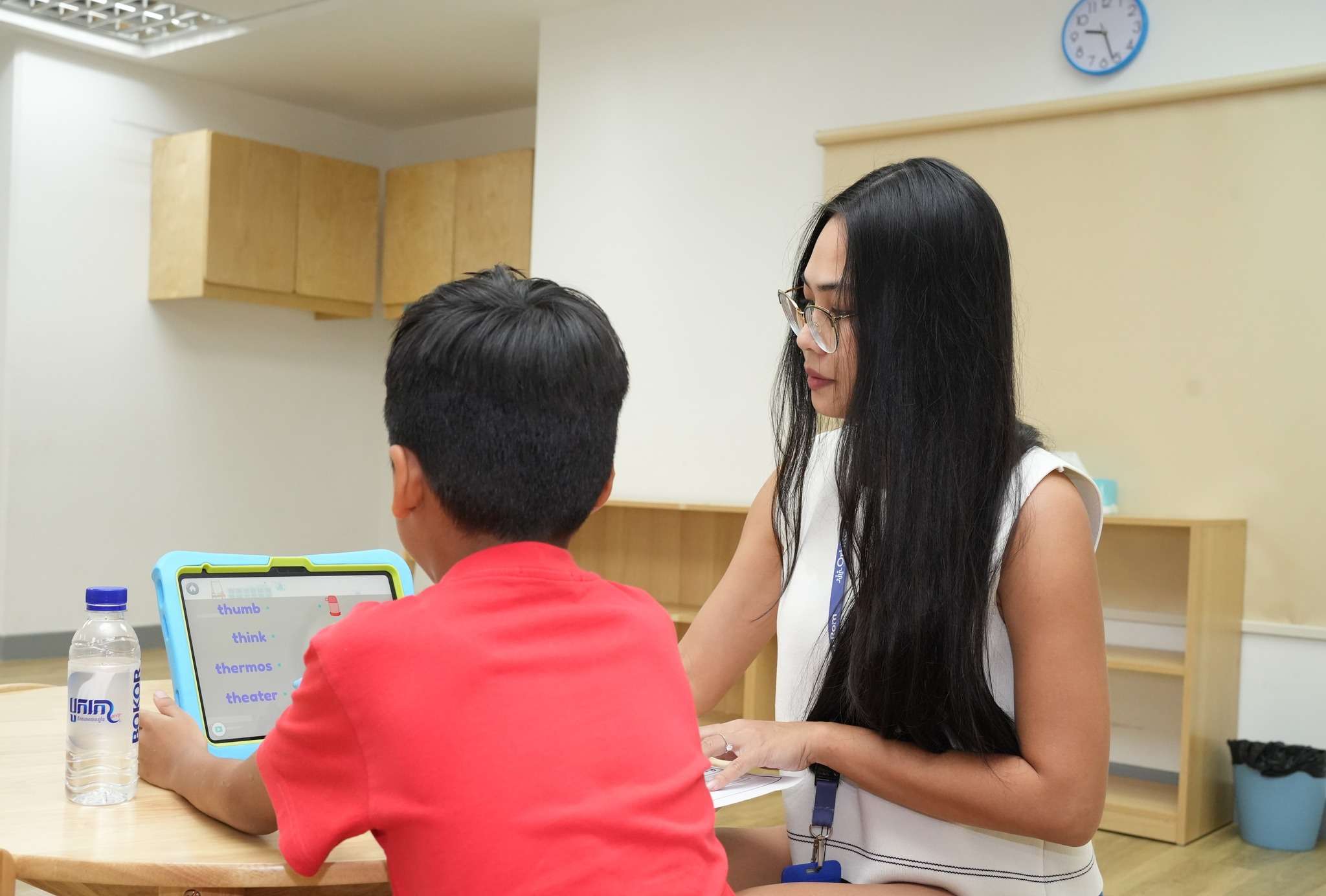
Sophaneth Heng, guiding a student through a focused phonics session at OrbRom Center.
Screening, Targets, and Progress You Can See
We begin with a short screening to pinpoint the precise skills a child needs: letter–sound knowledge, blending, segmenting, or multisyllabic decoding. This targeted start prevents wasted time and accelerates wins. If a profile suggests dyslexia or broader literacy needs, we align teaching with structured literacy principles and share home strategies parents can actually use. For a deeper dive, explore our article on phonics assessment strategies and practical tips for students with dyslexia.
Weekly checkpoints are built into every plan. Short passages and dictation show whether the new sound pattern is sticking, while progress charts keep families motivated. When a learner is ready, we widen the focus to vocabulary and comprehension so accuracy turns into understanding.

Interactive phonics practice helps students build accuracy and confidence in reading.
Services That Support Reading Growth
-
Speech Therapy: Many struggling readers have underlying phonological or articulation weaknesses. Our SLPs provide precise sound shaping and phonological-awareness training that supercharges phonics intervention.
-
Assessments: From screening to comprehensive evaluations, we map strengths and needs to create a clear, individualized plan.
-
Preschool Program: For early learners, daily routines embed sound play, oral language, and print awareness—foundations that make formal phonics easier later on.
Families in Phnom Penh choose OrbRom because sessions are practical, motivating, and measurable. If your child skips sounds, mixes similar digraphs, or avoids reading altogether, targeted phonics intervention can change the trajectory—one pattern, one successful read, one confident child at a time.
We are the only Preschool specialized on children with special needs in PhnomPenh.
- Internationally qualified teachers
- Cambodia’s largest sensory room
- Outdoor swimming pool
- Covered outdoor playground
📞 Phone: 077.455.993
Telegram Link: https://t.me/OrbRom

